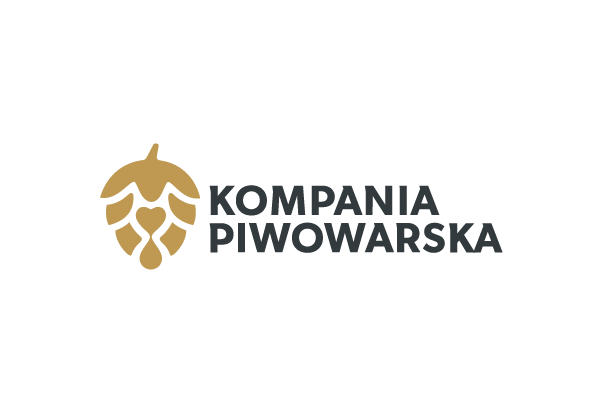International negotiations
Kategoria: Szkolenia SSC/GBS, Umiejętności biznesowe
Training carried out on individual customer’s request
„International Negotiations in Practice” is a training designed for professionals and managers involved in the area of international business negotiations who cooperate with various countries. This program not only explores the challenges of intercultural negotiations, but also offers practical tools for recognizing cultural differences, improving intercultural communication, and developing effective negotiation strategies.
During the training, participants will also acquire skills in building negotiation teams, managing roles and establishing lasting business relationships with international clients. This is an excellent opportunity to deepen your knowledge and improve your skills in the area of negotiations in the international arena.
In order to prepare the training according to the needs, each participant will be asked to fulfill the questionnaire in which he/she will declare the main challenges and name the countries of current cooperation.
The training is addressed to:
• Professionals involved in international negotiations on the daily basis in business sectors such as: companies cooperation, sales, logistics, procurement, finance, project management .
• Managers working in an international business environment.
• People who want to understand cultural differences and their impact on the dynamics of negotiations.
• People who want to improve communication skills in an international context.
• People who want to establish lasting business relationships with international clients.
• People who want to learn how to deal with linguistic differences.
• Developing negotiation skills in an international business context.
• Understanding cultural differences and their impact on the negotiation process.
• Building effective negotiation teams.
• Acquiring practical tools and techniques for preparing for negotiations, taking into account cultural differences.
• Increasing communication skills in an international context, with particular emphasis on the subtleties of communication.
• Increasing the effectiveness of negotiations.
• Expanding knowledge about international aspects of business and how to deal with them.
• Ability to build long-term relationships with business partners internationally.
• Receiving specific negotiation tools and strategies for immediate use in practice.
• Increased self-confidence and ability to cope with negotiation challenges, which translates into professional success.
• Integrated approach: Our International Negotiations in Practice program takes a holistic approach, covering a wide range of topics from cultural challenges to practical negotiation strategies. Participants gain comprehensive knowledge of the dynamics of international negotiations.
• Practical tools and techniques: We go beyond theory by providing participants with practical tools and techniques. Our emphasis is on practical applicability, ensuring that participants leave with skills they can use immediately.
• Emphasis on intercultural communication: Recognizing the crucial role of communication, especially in diverse international environments, our training places a strong emphasis on intercultural communication. Participants learn to navigate linguistic nuances and communicate their messages effectively.
• Team Building and Relationship Management: Not only do we delve into individual negotiation skills, but we also emphasize the importance of building and managing effective negotiation teams. Establishing and maintaining long-term business relationships is a key element.
• Experienced trainer: Our trainer brings with him extensive experience in international business negotiations. Case studies and examples are drawn from real scenarios, providing valuable insights and practical applications.
• Adaptability to Diverse Business Environments: Recognizing the ever-changing nature of international business, our program equips participants with flexible strategies. This ensures they are able to navigate diverse business environments and successfully deal with unforeseen challenges.
• Networking opportunities: Our training gives professionals the opportunity to establish contacts and exchange insights. Networking opportunities are integrated into the program, fostering collaboration and the exchange of best practices among participants.
DAY I
Module I – Introduction to international negotiations
• Challenges of intercultural negotiations connected with:
– Differences in perception of main aspects such as: time, hierarchy, dealing with uncertainty, deadlines, emotions, relations
– Communication: reading through cultural filters, assessing by “own” experience and cultural approach
• Cultural differences in business and their impact on negotiations:
– Time planned
– Preparations
– Potential obstacles
– Recognition of the cultural approaches in business in different countries
– Situations that may cause consternation
– Case studies: main mistakes made in real life situations
• Recognizing the partner’s intentions and his/her negotiating power based on cultural differences:
– How to recognize the inner intention of the business partner?
– Power in negotiation – how to assess my power and the power of the business partner?
– How the power in business is perceived in different countries?
• Online negotiations vs. stationary negotiations:
– The main differences
– Pros & cons of each one
– How to use online or stationary for the best benefits
Module II – Intercultural communication
• The role of culture in international communication:
– Preferable channels of communication depending on different cultures
– Ways of transmitting information: direct/indirect, formal/informal
– What to do when relation plays the crucial role in business?
• Key cultural values and their impact on the dynamics of negotiations:
– Approach to project management
– Approach to tasks division and tasks delegation
– Decision making process – based on individual or group?
• Differences in communication styles and detecting subtle nuances in communication:
– Case studies with real communication samples that caused the international conflicts. Analysis and drawing conclusions
• Communication channels – which ones to choose in a given culture
– Why do some countries prefer written communication and others face to face? How to adjust our communication to others?
• Cultural influence on negotiation styles and persuasion techniques
– Language of persuasion in different countries – what is the approach and examples of correct use?
• Simulation sessions and practical case studies
Module III – Preparation for negotiations
• Choosing the right negotiation tools and styles:
– Based on our needs
– Taking into account the cultural differences
– Taking into account our power and the power of the business partners
• System for creating negotiation scenarios
– Anticipating sticking points
– Determining BATNA, WATNA, ZOPA based on the collected data
• Starting negotiations as a basis – who, when, why (based on cultural differences)
• Simulation session
Module IV – Language and negotiations
• Why you should NOT translate communication and techniques 1:1 from your mother tongue into e.g. English?
• Tactical empathy – a technique used by FBI negotiators that mostly works in negotiations conducted in English:
– Indirect approach typical for English language
– Tactical empathy introduced by Chris Voss – ex FBI negotiator:
° Getting into the inner motivation
° Reading the hidden intention of the business partners that will help achieve the common goals
° Active listening techniques which help in understanding and omitting the conflicts
° Tactical empathy helps in deleting with emotions and develop emotional intelligence that so needed in negotiatons
– Calibrated questions – they are not used to get information, they are used to direct focus and shape thoughts
• Linguistic differences resulting from the culture of the language, which have a critical impact on communication and the outcome of negotiations
• Negotiation session
DAY II
Module V – Building a negotiation team
• Team or individual?
– Which countries prefer negotiating individually and which in groups – how can we assess it?
• Selecting appropriate team members and assigning roles
– Based on types of personalities and individual talents
• Managing roles and responsibilities in the team:
– Who should be responsible for which part in negotiation and how?
– Training the negotiation teams
Module VI – Negotiation strategies and scenarios
• How to build individual and team negotiation strategies?
– Writing the possible scenarios
– Which strategies to chose?
• Process maps of negotiation strategies – how to arrange and work with them?
• How to deal with manipulation during negotiations:
– How to recognize manipulation?
– How to stop it?
– How to move from manipulation into to negotiation?
• Being assertive in negotiation:
– Assertiveness in different cultures – how to set the boundry in different cultures
– Being polite vs being assertive – approach based on culture
• Negotiation session
Module VII – Establishing business relationships with international clients
• Social Proof in negotiations:
– Which cultures use it
– How to prepare and use our own social proof?
• Flexibility in negotiations – how to obtain it and what limits to set:
– Adjusting to different behaviors
– The ability to foresee some business situations based on culture
• Ways to overcome a negotiation impasse
• Negotiation session
Module VIII – Summary
• Examples of case studies from the trainer’s experience
• Q&A session
Training carried out on individual customer’s request.
We invite you to contact us
Krzysztof Kadlec
tel. 22 208 28 48
e-mail: krzysztof.kadlec@adnakademia.pl














